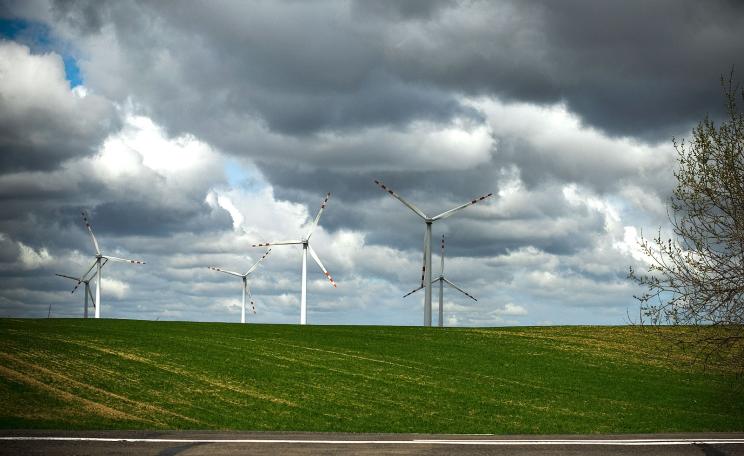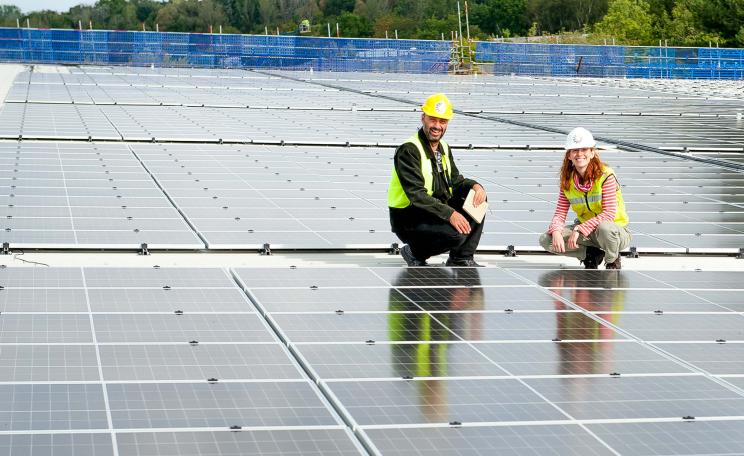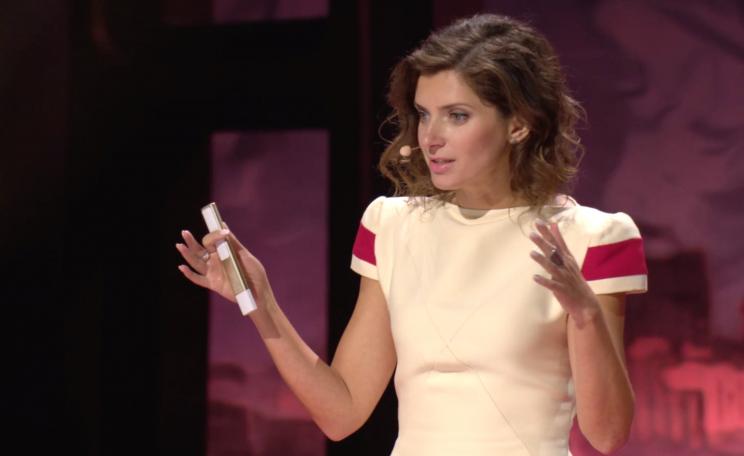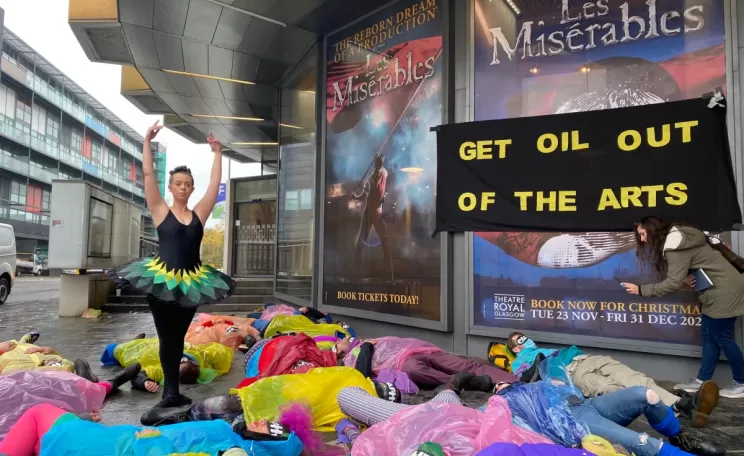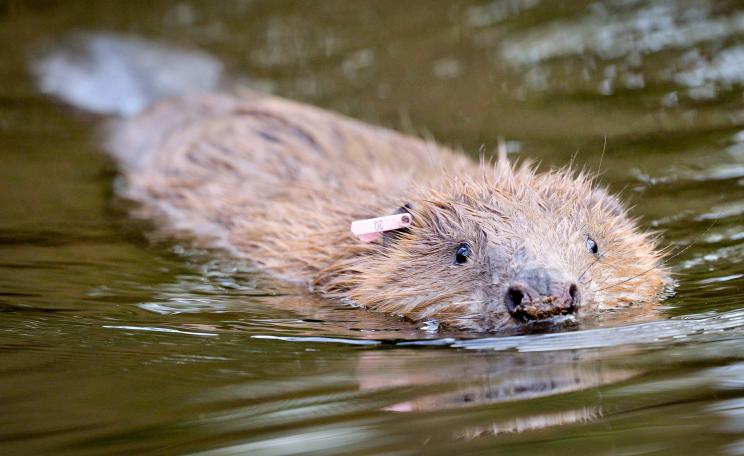Even for a city like Bristol, the first to declare a climate emergency back in 2018, the pace of change is too slow to meet its 2030 carbon neutral and climate resilient targets.
A young person suffering social anxiety finds her fists through boxing therapy, production studios lead the way to a sustainable future for the UK’s film industry, and children at a nursery school breathe clean air after a fightback against a diesel generator. There’s a connecting thread between all these stories - it is community-owned energy.
As an informed reader of The Ecologist, you will know the horrors that are happening in the world right now. Wildfires in Canada are suffocating New York City with acrid smoke and sea ice is disappearing in Antarctica. The hope of keeping global heating below 1.5 degrees is slipping away.
The injustice of this situation is outrageous. Across the world, people who contributed least to this crisis are the ones hit hardest. At home in the UK, fuel prices drive up poverty, while energy companies rake in eye-watering profits and the government licences new oil and gas infrastructure. It all looks pretty bleak, doesn’t it? It doesn’t have to.
Green growth
Community-owned renewable energy is the password to an alternative future. Instead of extracting resources and bookending a linear system with exploitation of people and the environment, this system is regenerative and fair. It is a growing movement to brighten up your doomscrolling. So how does it work?
Let’s start with renewables.
Not that long ago, the UK got most of its energy from a small number of power stations, many of which were coal fired. Now much of it comes from a million renewable energy installations, big and small.
Renewable energy is also now cheaper than fossil-fuel energy, thanks to a 90 per cent reduction in the cost of solar panels and wind turbines over the past two decades. In 2022, wind power contributed 26.8 per cent of the UK’s total electricity generation and solar 4.4 per cent.
At Bristol Energy Cooperative, we’re proud to have played a small part in this in our local area. As community-owned renewable energy developers, we have successfully completed eight share offers and brought 17 clean energy projects online since starting in 2011 - including two solar farms, grid-servicing battery storage and 14 rooftop solar arrays. We have also funded battery and solar panels in two microgrid sites, a housing development in Bristol and a co-housing project in Dorset.
Who owns it
There’s more to the picture than the growth of renewable energy. Also integral is who owns our energy resources. Tessa Khan, the executive director and founder of Uplift, explained in a recent BBC interview that our oil and gas supplies belong to companies that export that product to whoever pays the most for it.
“It doesn’t matter how much oil and gas we produce domestically, it doesn’t change the price that we pay for it,” she said. “As we know in this country, what we have is an energy affordability crisis rather than an energy supply crisis.”
Even for a city like Bristol, the first to declare a climate emergency back in 2018, the pace of change is too slow to meet its 2030 carbon neutral and climate resilient targets.
Community-owned energy breaks that mould. The phrase refers to projects where people own or take part in the production and/or use of renewable energy.
There are several characteristics common to such projects, including membership models which include active participation, providing tangible benefits to the local community, and decarbonisation - to name just a few.
So what does it mean for renewable energy to be community owned and how does it work? For us, the clue is in the name.
We are a cooperative, which means as well as commercial loans a large part of our funding comes from community share / bond offers. Each of our 1,500 investor members has an equal say in our running, no matter how much they have invested.
We make community benefit payments from our project revenues. So far we’ve channelled over £350,000 into schemes and causes that have social and environmental value. Let us take you on a quick tour of some of this work.
Boxing therapy
Back in 2014, when we installed 20 kilowatts of solar onto the gym roof, Empire Fighting Chance was a newly-formed charity running school engagement programmes from their base in Bristol.
Now they run the UK’s largest non-contact boxing schools engagement programme and have 15 different gyms across the country.
The work they face is huge, as the cost of living, pressures in the education and health systems - not to mention social anxiety exacerbated by Covid - have left many young people floundering.
Bristol Energy Coop feels honoured to be able to remove some stresses by saving the charity over £1,300 in energy bills per year through our solar installation. This allows the team to focus on spreading the work they do to support more young people in making positive life decisions.
Sun screen
Our largest solar rooftop project to date, The Bottle Yard 2 Studios (TBY2), is laying a new path for sustainable film and TV production in the UK, and allowing viewers to enjoy hit shows like The Outlaws without costing the Earth.
Last year we installed over 2,300 solar panels on the roof - a total of 1 Megawatt of generating capacity that can power the equivalent of 250 homes each year.
This can feed renewable energy into the local grid and help the city meet its net zero targets. In recognition of the studio’s progressive work and climate goals, the team won the Sustainability Initiative Award at Cannes last month.
People power
Our latest investment project involves an amazing community fightback which BEC was part of. It started in 2015, when a developer tried to get planning permission for a polluting diesel power plant in Bristol.
Local campaign group Residents Against Dirty Energy, with the help of BEC, successfully opposed the application. But that wasn’t the end of the story.
A year later, the same developer submitted another plan, this time for 48 diesel engines close to a nursery school. The noise and air pollution they produced would have been equivalent to 96 bus engines.
Again the community rallied, defeating the plan and an attempted appeal. Today, with the support of local people, the site is home to a different kind of energy - a new battery storage scheme partly funded by BEC. We are currently raising more funds to invest in this important project.
These are heartening stories, but of course, when you look at the bigger picture they’re not enough. The UN Framework Convention on Climate Change has warned that the world is at a tipping point and governments need to put aside national interests to tackle the crisis.
Even for a city like Bristol, the first to declare a climate emergency back in 2018, the pace of change is too slow to meet its 2030 carbon neutral and climate resilient targets.
So what can we do? We can take action.
Look up Community Energy Fortnight to see if there’s an event near you, and spread the word, set up your own actions in your own communities, and if you have the means, invest in a community-owned energy project.
“Community power can help place citizens and communities at the centre of the low carbon transition,” according to Client Earth. With the people in charge failing us, it’s up to us to lead the way to a liveable future.
These Authors
Andy O’Brien is co-founder and executive director of Bristol Energy Cooperative (BEC). Marianne Brown is the communications manager at BEC.
Bristol Energy Cooperative is a sponsor of Small is the Future, which is being held by The Ecologist and the Schumacher Institute in Bristol on Saturday, 17 June 2023.


